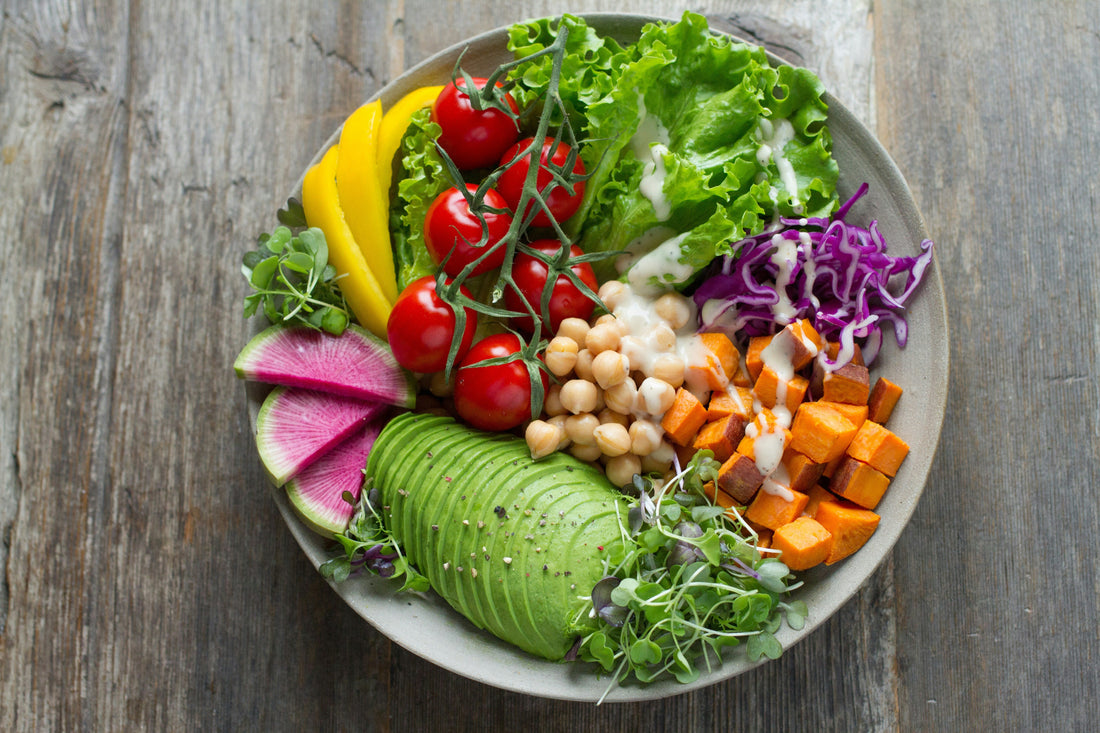
Women's Hormones & Nutrition: Foods to Support Healthy Hormone Balance
Share
Hormones play a vital role in women’s overall health, influencing everything from metabolism and energy levels to mood, digestion, and reproductive function. When hormones are balanced, we feel strong, energized, and mentally clear. However, poor nutrition, stress, and lifestyle factors can throw hormones out of sync, leading to fatigue, weight fluctuations, mood swings, irregular cycles, and more. Fortunately, the foods we eat have a direct impact on hormone regulation and can support a balanced, thriving body.
Key Nutrients for Hormonal Balance
To maintain healthy hormone levels, it's essential to consume nutrient-dense foods that support the body's natural production and detoxification of hormones. Below are some of the most important nutrients and the best foods to incorporate into your diet.
1. Healthy Fats for Hormone Production
Hormones, especially reproductive hormones like estrogen and progesterone, are made from cholesterol and fatty acids. Including high-quality fats in your diet helps regulate cycles, improve skin health, and support brain function.
- Avocados – Rich in monounsaturated fats that help with hormone production and reduce inflammation.
- Olive Oil – Supports heart health and helps combat oxidative stress.
- Nuts & Seeds (Flaxseeds, Chia Seeds, Walnuts) – Provide omega-3s and fiber, which support estrogen metabolism.
- Fatty Fish (Salmon, Sardines, Mackerel) – High in omega-3s, essential for reducing inflammation and supporting reproductive health.
- Egg Yolks – Contain cholesterol, which is necessary for hormone synthesis, along with key vitamins like A, D, and K.
2. Protein for Blood Sugar & Metabolic Balance
Stable blood sugar levels are crucial for keeping insulin, cortisol, and reproductive hormones in check. Protein helps regulate appetite, build lean muscle, and stabilize energy levels.
- Grass-Fed Beef – High in iron and B vitamins, which support energy and thyroid function.
- Pasture-Raised Chicken & Turkey – Rich in amino acids for muscle repair and hormone production.
- Legumes (Lentils, Chickpeas, Black Beans) – Contain plant-based protein and fiber, which help detox excess estrogen.
- Greek Yogurt – Provides protein along with probiotics that support gut health, which plays a role in hormone balance.
3. Fiber for Detoxing Excess Hormones
The body naturally eliminates excess hormones through digestion. Fiber-rich foods help bind to excess estrogen and toxins, ensuring they are efficiently removed from the body.
- Cruciferous Vegetables (Broccoli, Brussels Sprouts, Cauliflower, Kale) – Contain compounds that support liver detoxification of estrogen.
- Berries (Blueberries, Raspberries, Strawberries) – High in antioxidants, which combat oxidative stress and support hormone health.
- Sweet Potatoes – Provide fiber and slow-digesting carbohydrates to maintain stable blood sugar.
4. Micronutrients for Thyroid & Adrenal Support
The thyroid and adrenal glands play a significant role in energy, metabolism, and stress management. Supporting these glands with essential vitamins and minerals can help prevent imbalances.
- Brazil Nuts – One of the richest sources of selenium, which is crucial for thyroid function.
- Seaweed (Nori, Kelp, Dulse) – High in iodine, necessary for thyroid hormone production.
- Pumpkin Seeds – Contain zinc, which supports progesterone production and immune health.
- Dark Leafy Greens (Spinach, Swiss Chard, Arugula) – Provide magnesium, which helps reduce stress and balance cortisol levels.
5. Gut Health for Hormone Regulation
A healthy gut microbiome is essential for breaking down and metabolizing hormones like estrogen. Consuming probiotic and prebiotic-rich foods helps support digestion and overall hormone function.
- Sauerkraut & Kimchi – Fermented vegetables rich in probiotics.
- Kefir & Yogurt – Support gut bacteria and aid in digestion.
- Garlic & Onions – Provide prebiotics that feed beneficial gut bacteria.
Final Thoughts
Balancing hormones naturally starts with fueling your body with nutrient-dense, whole foods. Incorporating healthy fats, high-quality protein, fiber, and key vitamins and minerals can make a significant impact on energy levels, mood, metabolism, and overall well-being. If you're struggling with hormonal imbalances, consider assessing your diet and making small, sustainable changes to nourish your body from within.
Would you like a deeper dive into specific hormonal concerns, such as PCOS, thyroid health, or menstrual cycle support? Let me know—I’d love to share more insights!
